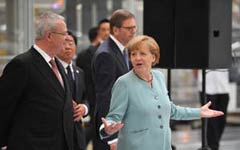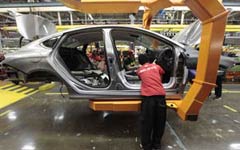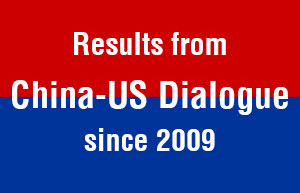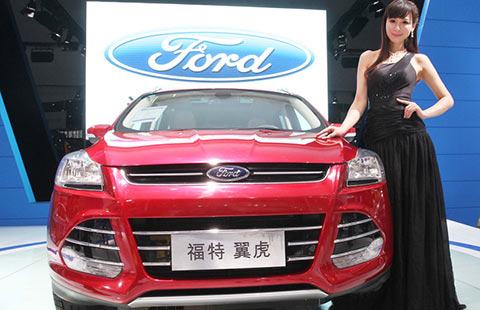Vehicle purchases hitting top gear
By Li Fangfang (China Daily) Updated: 2014-07-09 07:15Under the agreement, every electric or new energy vehicle produced in one of the two countries must be equipped with the same charging plug, and the charging facilities established in the countries will all be based on the same standard.

|

|
"There's huge potential in China's electric vehicle market. The one with the biggest market share will have the say in implementing the standard," said Merkel, indicating that the landmark agreement should start a trend of having an internationally unified charging standard.
Li Gang, an official with the National Development and Reform Commission, said the Chinese government is establishing charging infrastructure, implementing a power pricing policy and encouraging the use of electric vehicles in the public sector.
"We are also planning policies to encourage innovative business models for charging facility construction and operation, and supporting private capital to enter the electric vehicle leasing, battery rental and recycling sectors," Li said.
According to Ouyang Minggao, a professor at Tsinghua University who is conducting new energy vehicle research, in recent years, sales of new energy vehicles have increased by about 100 percent annually.
He believes that "2014 is the start of the era representing new energy vehicles' wide use in the individual market. With more new models to be launched in the second half, total new energy vehicle sales are expected to reach 100,000 units by the end of the year, more than double the number of about 40,000 units last year.
"And we hope sales will double again, which will help make China realize its target of having 500,000 new energy vehicles by 2015," Ouyang said.
- Chinese vice-premier meets Volkswagen chief
- Nation's energy demand slowing
- World Bank head says new entrants 'will be welcome'
- Vehicle purchases hitting top gear
- Baidu debuts A-share index using big data
- Tesla faces suit over trademark in China
- Firms moving up Fortune's ladder
- Airbus sees Chinese market as one of the world's largest

















